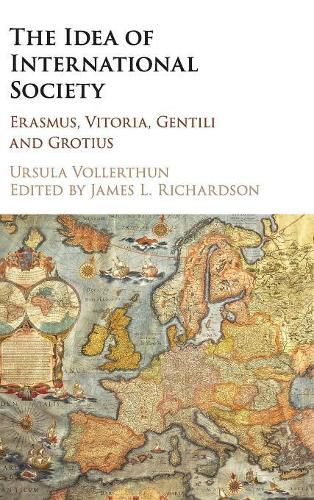Readings Newsletter
Become a Readings Member to make your shopping experience even easier.
Sign in or sign up for free!
You’re not far away from qualifying for FREE standard shipping within Australia
You’ve qualified for FREE standard shipping within Australia
The cart is loading…






This book offers the first comprehensive account and re-appraisal of the formative phase of what is often termed the ‘Grotian tradition’ in international relations theory: the view that sovereign states are not free to act at will, but are akin to members of a society, bound by its norms. It examines the period from the later fifteenth to the mid-seventeenth centuries, focusing on four thinkers: Erasmus, Vitoria, Gentili and Grotius himself, and is structured by the author’s concept of international society. Erasmus’ views on international relations have been entirely neglected, but underlying his work is a consistent image of international society. The theologian Francisco de Vitoria concerns himself with its normative principles, the lawyer Alberico Gentili - unexpectedly, the central figure in the narrative - with its extensive practical applications. Grotius, however, does not re-affirm the concept, but wavers at crucial points. This book suggests that the Grotian tradition is a misnomer.
$9.00 standard shipping within Australia
FREE standard shipping within Australia for orders over $100.00
Express & International shipping calculated at checkout
This book offers the first comprehensive account and re-appraisal of the formative phase of what is often termed the ‘Grotian tradition’ in international relations theory: the view that sovereign states are not free to act at will, but are akin to members of a society, bound by its norms. It examines the period from the later fifteenth to the mid-seventeenth centuries, focusing on four thinkers: Erasmus, Vitoria, Gentili and Grotius himself, and is structured by the author’s concept of international society. Erasmus’ views on international relations have been entirely neglected, but underlying his work is a consistent image of international society. The theologian Francisco de Vitoria concerns himself with its normative principles, the lawyer Alberico Gentili - unexpectedly, the central figure in the narrative - with its extensive practical applications. Grotius, however, does not re-affirm the concept, but wavers at crucial points. This book suggests that the Grotian tradition is a misnomer.